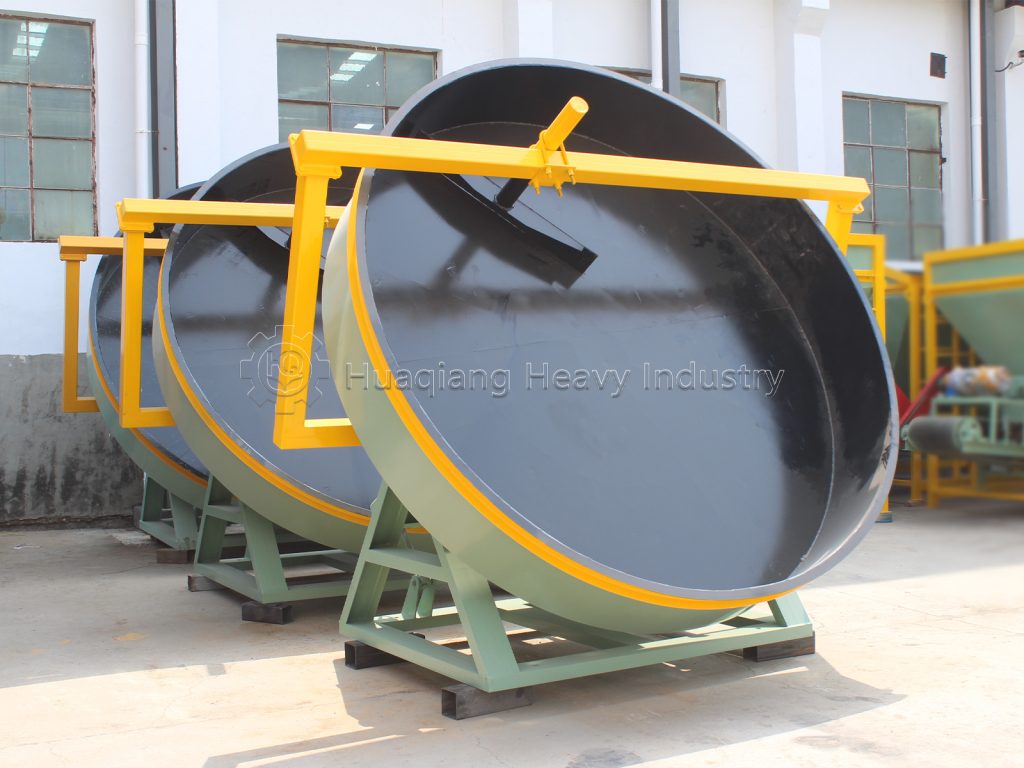In the NPK fertilizer production line, disc granulators are a widely used and highly favored granulation equipment.

The disc granulator‘s structure is relatively simple yet unique. It primarily consists of an inclined disc, a drive mechanism, and a spray system. The disc, the core of the granulation process, is typically constructed of high-strength steel to ensure it can withstand the various forces involved in the granulation process. The drive mechanism provides stable rotational power to the disc, ensuring it rotates at an appropriate speed.
The disc’s operating principle is based on the movement and interaction of the materials within the rotating disc. When the mixed NPK fertilizer raw materials are fed into the rotating disc, the disc’s tilt and rotational motion cause the materials to roll upward along the disc’s inner wall due to a combination of centrifugal force, friction, and gravity. During this rolling process, a spray system applies a binder to the material. The binder acts like “glue,” gradually binding the loose raw material particles together and causing them to aggregate and grow. Over time, these agglomerated particles continuously roll and collide within the disc, further compacting and shaping them, ultimately forming relatively uniformly sized round granules that roll off the disc’s edge, completing the granulation process.
Disc granulators offer numerous advantages. First, they produce fertilizer granules with high roundness, excellent appearance, and strong market competitiveness. Second, they are relatively simple to operate and easy to master, requiring minimal operator skill. Furthermore, disc granulators are highly adaptable and can produce fertilizer granules of varying sizes to meet diverse market demands by adjusting parameters such as disc speed, tilt angle, and binder spraying rate to meet specific production needs.
However, disc granulators also have limitations. For example, compared to some large-scale granulation equipment, their production efficiency may be relatively low, making them less suitable for large-scale industrial production. Furthermore, when processing high-viscosity raw materials, material may stick to the disc, affecting granulation efficiency and equipment operation. Nevertheless, due to their unique advantages, disc granulators still play an important role in the production of NPK compound fertilizers by small and medium-sized enterprises, as well as in production scenarios where the appearance of fertilizer granules is a high priority.